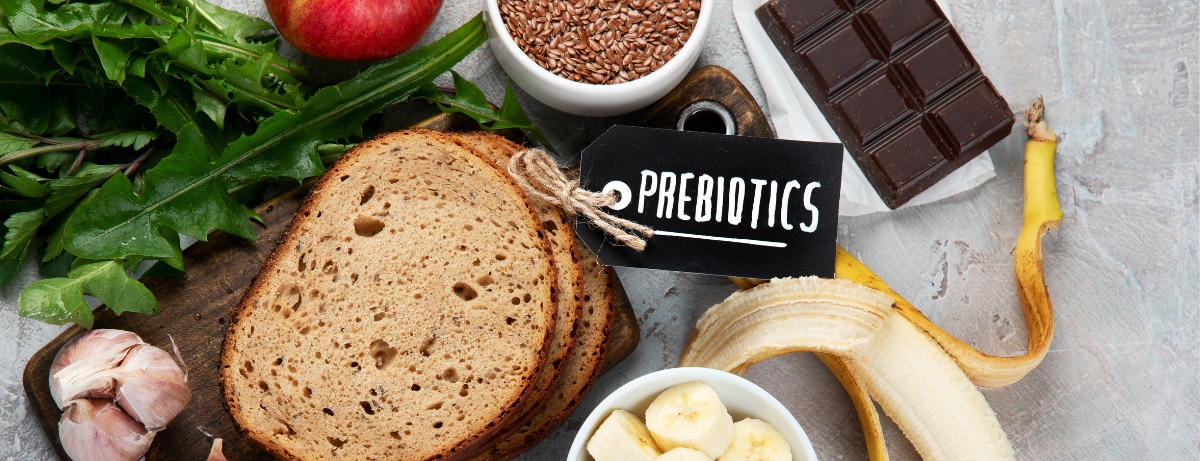15% off £25 or 20% off £35
Code:BASKET
Trapped wind & gas: common causes and simple remedies for relief

Fart jokes aside, trapped wind is no laughing matter. Discover what causes painful gas, how to ease discomfort naturally and get back to feeling like you again
Summary
1What’s stomach gas pain?
It’s normal to have gas in your digestive system. If you swallow too much air when eating, burping helps release it, while passing wind…
2What causes excessive gas and bloating?
Digestive gases can come from swallowing, chemical reactions within the digestive tract or bacteria found in the intestines…
3How to relieve stomach gas pain naturally
A few lifestyle changes can help reduce the chances of bloating and stomach gas pain, including…
Gas build-up in your gut is normal. Usually, it sneaks out through farting or burping. But for some, excess gas or heightened sensitivity to it can lead to bloating and trapped gas pain.1-3
If you’ve ever felt that sharp, uncomfortable pressure from bloating, you’ll know it’s no joke. But you don’t have to suffer in silence – there are plenty of simple things you can try to ease the discomfort and find relief. Just remember, if you feel bloated regularly, the NHS recommends checking in with your doctor to rule out anything more serious.
We’ll discuss the best ways to tackle gas-related stomach pain (including a few natural remedies), but first, let’s get into what’s really going on inside.
What’s stomach gas pain?
It’s normal to have gas in your digestive system.2,3 If you swallow too much air when eating, burping helps release it, while passing wind gets rid of gas produced by bacteria in your intestines.2,3
Some gas (especially after eating) is expected. In fact, an average person burps up to 30 times a day and passes gas 8–14 times.4
But for some, gas builds up more easily or feels more uncomfortable, leading to trapped gas symptoms like:1,3-5
- bloating
- belching/burping
- farting/passing wind
- stomach pain or discomfort
So, why does trapped wind happen, and what causes excessive gas production?
What causes excessive gas and bloating?
The digestive tract contains a mix of gases like nitrogen, carbon dioxide, methane, oxygen and hydrogen.6

These gases can come from:3,6
- swallowing air
- chemical reactions in the digestive tract
- your gut microbiome (the trillions of bacteria living in your gut)
When any of these processes go into overdrive, gas can build up, sometimes leading to bloating and gas pain in the belly.4,6 Let’s explore some of the factors behind that gassy build-up.
What and how you eat
Eating too quickly, consuming food that’s too hot or drinking lots of fluids during meals can all cause you to swallow more air, resulting in excess gas in your digestive system.2,6
Fizzy drinks are major culprits. Loaded with carbon dioxide, they add extra gas to your stomach with every sip.2 Even chewing gum can increase the amount of air you swallow without realising.2,6
But it’s not just how you eat – it’s what you eat and drink alongside your meals. Certain foods can naturally ramp up gas production as they’re broken down by bacteria in your intestines.³˒⁶ These include:
- non-digestible, fermentable carbohydrates
- proteins
- fats
Common gas boosters? Pulses, fruits and vegetables, whole grains and dairy products often top the list.³ But before you panic – these foods are an important (and healthy!) part of your diet, and gas is a completely normal by-product of digestion. You don’t need to cut them out altogether, but if you notice certain foods make you especially uncomfortable, it may help to keep track and adjust your intake.
And, if you have a food intolerance (like lactose or wheat) or irritable bowel syndrome, the foods you’re sensitive to may trigger even more gas.3,7
Digestive disorders
For some even normal gas levels can cause big discomfort.3,8 People with certain digestive disorders may experience trapped gas pain due to increased sensitivity – to the gas itself, the stretching of the gut or even the toxic effects of some gases.3,8
For example, people with inflammatory bowel disease (IBD) may react to higher levels of hydrogen sulfide gas, while those with irritable bowel syndrome (IBS) can be particularly sensitive to gases produced after eating FODMAP-rich foods.3,7,9
Before we get into ways to ease stomach gas symptoms, here’s something to keep in mind: bloating is usually harmless, but in rare cases, it can be linked to more serious conditions. Bloating can be a symptom of certain cancers in the abdominal (stomach) area, like ovarian cancer or stomach cancer.10, 11
It’s a good idea to see your GP if your bloating:12,13
- carries on for several weeks
- doesn’t improve with diet changes
- comes with other symptoms – like swelling in your stomach, weight loss, blood in your poo or vomiting
The good news? In most cases, bloating is simply caused by excess gas.10 So, let’s talk about what you can do to manage it.
How to relieve stomach gas pain naturally
A few lifestyle changes can help reduce the chances of experiencing bloating and stomach gas pain, including:1,10

- eating mindfully – sit upright and chew with your mouth closed
- avoiding trigger foods – skip anything you know causes symptoms
- having smaller, more regular meals – instead of large, heavy portions
- staying active – exercising regularly can keep things moving
If the pain has already started, you may be hoping for some faster-acting relief. Massaging your tummy from right to left can help direct trapped wind out of your digestive tract and ease the pain.10
Applying a heat pack may also soothe stomach pain.12 One study found that heat therapy helped improve bowel movements and abdominal pain in people with constipation-related discomfort.12
Some people also turn to natural supplements, teas and other remedies for gas pain relief.
Herbal and natural remedies for gas relief
Although painkillers and other medications may help ease trapped wind symptoms like pain and bloating, you may prefer a more natural option.1,10
Peppermint oil works as an antispasmodic – in other words, it may help relax the muscles in your gut.¹² Some research suggests it could ease bloating, tummy pain and other IBS symptoms, though the evidence in otherwise healthy adults is still limited.1,14,15
Interestingly, one study found that peppermint teamed up with caraway oil might help with indigestion – but more research is needed before we can say for sure.16
You can enjoy the potential benefits of peppermint in a soothing cup of tea or try peppermint oil capsules.
Activated charcoal is sometimes used to help with digestion. Research shows it can reduce excessive gas after eating by cutting down on the build-up of intestinal air.
Curious to try it? Some people find taking it in supplement form after a meal helps ease that too-full, gassy feeling. Just make sure to follow the instructions on the label, and check with your doctor first if you’re on any medication, as charcoal can affect how some medicines are absorbed.
The final say
Excess gas in your digestive system can lead to uncomfortable pain and bloating – but a few small changes to what and how you eat may offer relief.1,3-5,10
While gas-related discomfort is common, sudden or severe stomach pain and bloating could be a sign of something more serious. If you’re concerned, it’s always best to check in with a doctor.20
Looking for more ways to support your gut? Visit our digestive health hub for expert tips on keeping your digestive system healthy.
Disclaimer - The advice in this article is for information only and should not replace medical care. Please check with your GP or healthcare professional before trying any supplements, treatments or remedies. Food supplements must not be used as a substitute for a varied and balanced diet and a healthy lifestyle.
While we strive for accuracy and balance, please be aware that this article may discuss products available for purchase through Holland & Barrett. Consult a healthcare professional before making any health-related decisions.
1. Patient. Trapped wind, gas and bloating [Internet]. [cited 2025 Feb 26]. Available from: https://patient.info/digestive-health/irritable-bowel-syndrome-leaflet/wind-gas-and-bloating
2. GUTS UK. Wind | Expert Guide [Internet]. [cited 2025 Feb 26]. Available from: https://gutscharity.org.uk/advice-and-information/symptoms/wind/
3. Mutuyemungu E, et al. Intestinal gas production by the gut microbiota: A review. J Funct Foods. 2023;100:105367. https://doi.org/10.1016/j.jff.2022.105367
4. National Institute of Diabetes and Digestive and Kidney Diseases. Symptoms & causes of gas in the digestive tract [Internet]. [cited 2025 Feb 26]. Available from: https://www.niddk.nih.gov/health-information/digestive-diseases/gas-digestive-tract/symptoms-causes
5. NHS Inform. Stomach ache and abdominal pain [Internet]. [cited 2025 Feb 26]. Available from: https://www.nhsinform.scot/illnesses-and-conditions/stomach-liver-and-gastrointestinal-tract/stomach-ache-and-abdominal-pain/
6. da Silva ACV, et al. Effect of gum chewing on air swallowing, saliva swallowing and belching. Arq Gastroenterol. 2015;52(3):190–4. https://doi.org/10.1590/S0004-28032015000300007
7. Patcharatrakul T, et al. Effect of structural individual low-FODMAP dietary advice vs. brief advice on a commonly recommended diet on IBS symptoms and intestinal gas production. Nutrients. 2019;11(12):2856. https://doi.org/10.3390/nu11122856
8. Major G, et al. Colon hypersensitivity to distension, rather than excessive gas production, produces carbohydrate-related symptoms in individuals with irritable bowel syndrome. Gastroenterology. 2017;152(1):124–133.e2. https://doi.org/10.1053/j.gastro.2016.09.062
9. Stummer N, et al. Role of hydrogen sulfide in inflammatory bowel disease. Antioxidants (Basel). 2023;12(8):1570. https://doi.org/10.3390/antiox12081570
10. NHS. Bloating [Internet]. [cited 2025 Feb 26]. Available from: https://www.nhs.uk/conditions/bloating/
11. Cancer Research UK [Internet]. Symptoms of advanced stomach cancer [cited 2025 Apr 2]. Available from: https://www.cancerresearchuk.org/about-cancer/stomach-cancer/advanced-cancer/symptoms-advanced-cancer
12. Eshaghi A, et al. The effect of abdominal heat therapy on constipation. Gastrointest Nurs. 2024;22(3):160–5. https://doi.org/10.12968/gasn.2024.22.3.160
13. Ingrosso MR, et al. Systematic review and meta‐analysis: Efficacy of peppermint oil in irritable bowel syndrome. Aliment Pharmacol Ther. 2022;56(6):932–41. https://doi.org/10.1111/apt.17179
14. Weerts ZZRM, et al. Efficacy and safety of peppermint oil in a randomized, double-blind trial of patients with irritable bowel syndrome. Gastroenterology. 2020;158(1):123–36. https://doi.org/10.1053/j.gastro.2019.08.026
15. Rather MA, et al. Foeniculum vulgare: A comprehensive review of its traditional use, phytochemistry, pharmacology, and safety. Arab J Chem. 2016;9(2):S1574–83. https://doi.org/10.1016/j.arabjc.2012.04.011
16. Madisch A, Melderis H, Mayr G, Sassin I, Hotz J. A plant extract and its modified preparation in functional dyspepsia: results of a double-blind, placebo-controlled, randomized trial. Phytomedicine. 2001 Mar;8(1):47-56. doi:10.1078/0944-7113-00005. PMID: 31827561.
17. Hall RG, Thompson C, Strother A, Edwards J, Dietrich C, Kern F Jr. Activated charcoal in vivo and in vitro: studies of its effect on gas formation. Gastroenterology. 1981 Aug;81(2):276-80. PMID: 7016973.
18. Suarez FL, Furne JK, Springfield J, Levitt MD. Failure of activated charcoal to reduce the release of gases produced by the colonic flora. Am J Gastroenterol. 1999 Oct;94(10):208-12. doi:10.1111/j.1572-0241.1999.01208.x. PMID: 10520817.
19. EFSA Panel on Dietetic Products, Nutrition and Allergies (NDA). Scientific opinion on the substantiation of health claims related to activated charcoal and reduction of excessive intestinal gas accumulation (ID 2865, 1818) pursuant to Article 13(1) of Regulation (EC) No 1924/2006. EFSA Journal. 2011;9(4):2049. doi:10.2903/j.efsa.2011.2049.
20. NHS. Stomach ache [Internet]. [cited 2025 Feb 26]. Available from: https://www.nhs.uk/conditions/stomach-ache/














